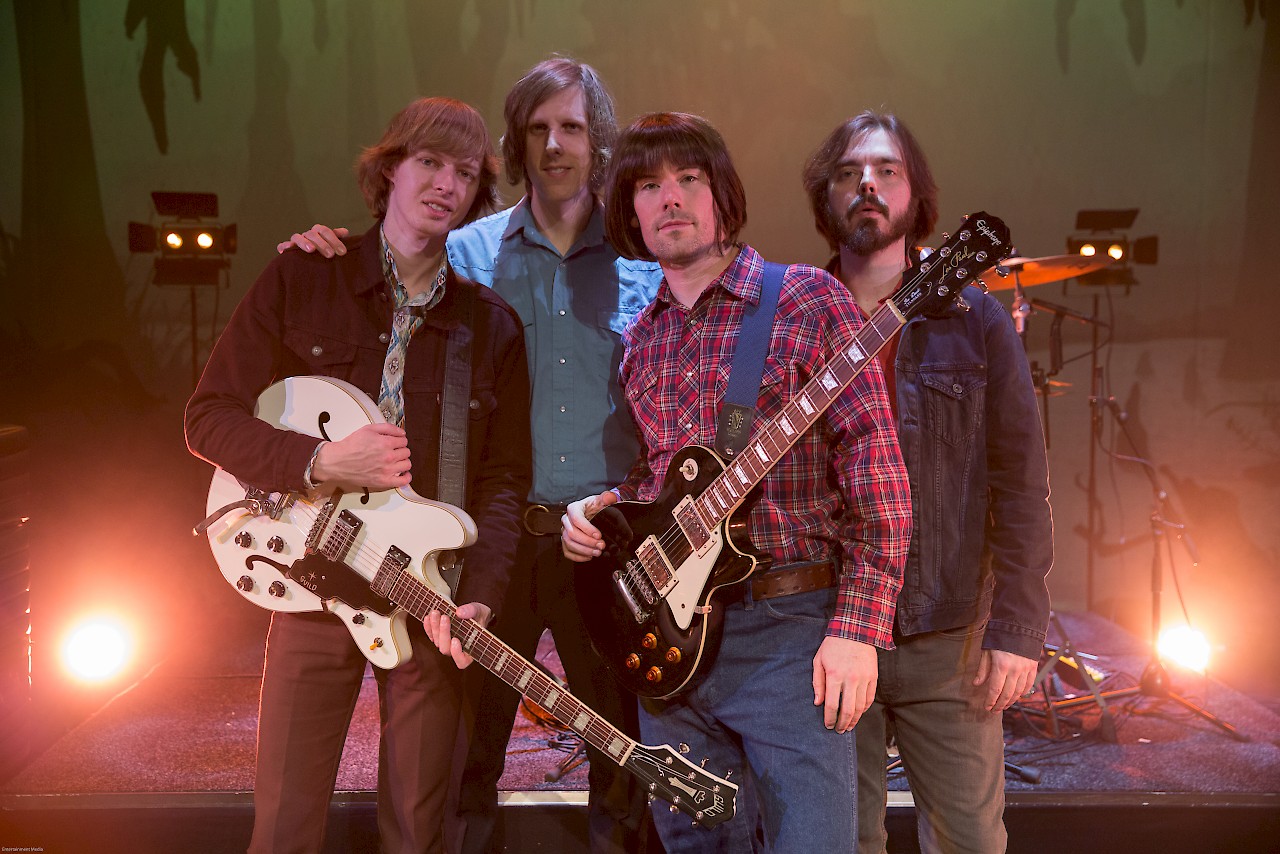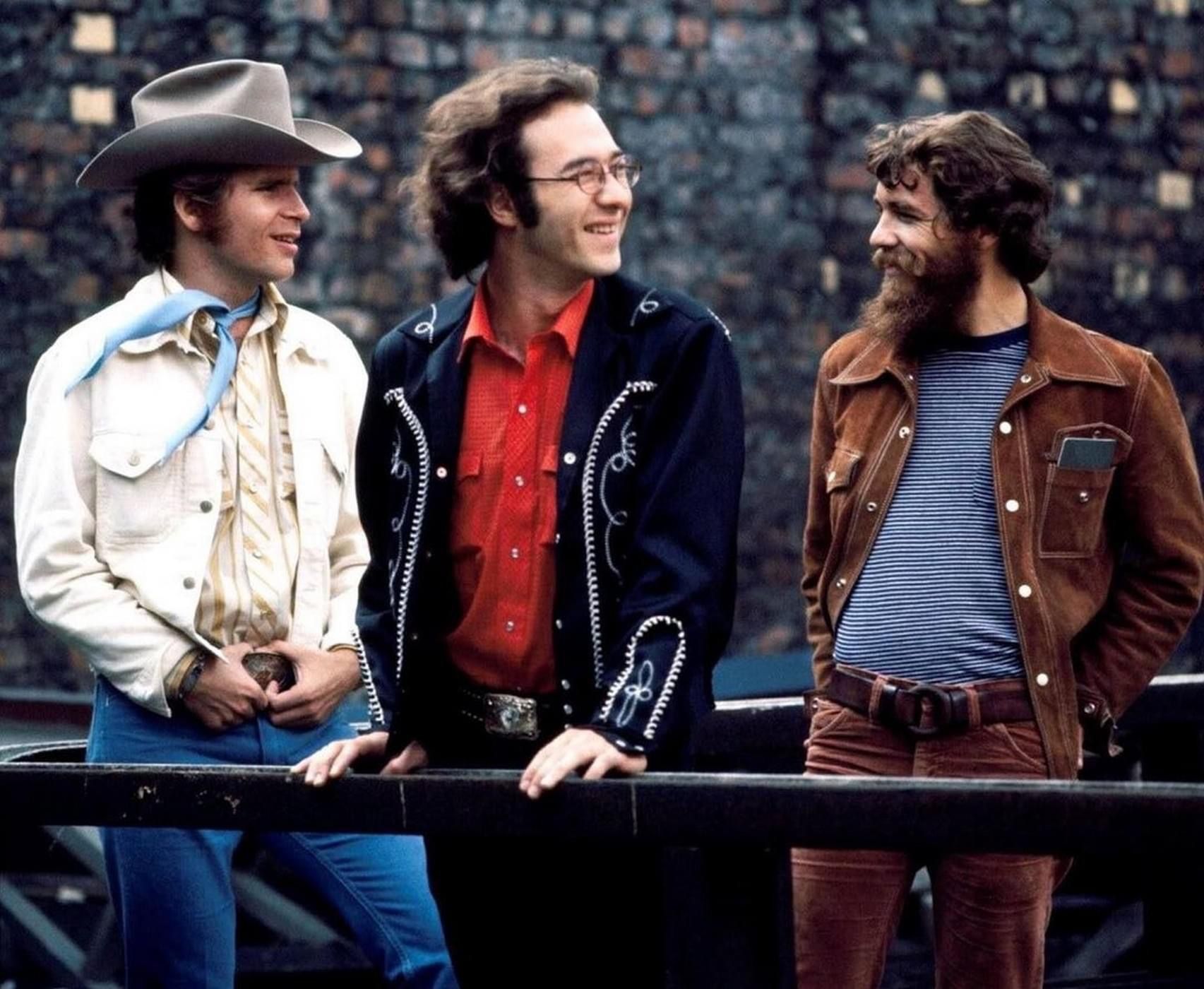
A Nostalgic Journey Through Time with “Bootleg” by Creedence Clearwater Revival
In the landscape of rock music, few bands have etched their mark as indelibly as Creedence Clearwater Revival (CCR). Their music, a seamless blend of swamp rock and blues, resonates with an authenticity that is both timeless and evocative. Among their memorable tracks, “Bootleg” stands out as a poignant reflection of an era marked by its own complexities and contradictions. Released as part of their 1969 album “Bayou Country,” this song encapsulates the spirit of a time when music was more than mere entertainment—it was a powerful social commentary.
“Bootleg” did not chart as a single, but its presence on the “Bayou Country” album contributed to the record’s success. The album itself peaked at number seven on the Billboard 200 chart, solidifying CCR’s status as one of the defining bands of their generation. The track carries with it an undercurrent of rebellion and defiance, woven into the fabric of its lyrics and rhythm. It’s a song that speaks to those who lived through an era of civil unrest and change, capturing the essence of a society grappling with issues of identity and justice.
At its core, “Bootleg” is a narrative about authenticity versus imitation, a theme that resonates deeply with listeners who have witnessed—or been part of—the tumultuous social changes of the late 1960s. The song’s lyrics tell the story of someone living on the fringes, involved in the illicit trade of bootleg liquor—a metaphor that could easily extend to broader themes of resistance against societal norms and government authority. This narrative is delivered with CCR’s signature sound: gritty guitar riffs, driving rhythms, and John Fogerty’s unmistakable voice, which carries both urgency and nostalgia.
The historical context in which “Bootleg” was released cannot be overstated. The late 1960s were a time of significant upheaval in the United States and around the world. The Vietnam War was at its peak, sparking widespread protests and a counterculture movement that questioned established norms. In this environment, music became a vehicle for expressing dissent and fostering solidarity among those who longed for change. CCR’s music, with its rootsy authenticity and socially aware lyrics, struck a chord with this audience.
For many listeners today—especially those who experienced the era firsthand—listening to “Bootleg” is like opening a time capsule. It evokes memories not only of personal youth but also of collective struggle and hope for a better future. The song’s repetitive refrain “Bootleg!” echoes like a rallying cry across decades, inviting listeners to reflect on what it means to be genuine in a world that often values facades over truth.
The production on “Bayou Country,” led by John Fogerty himself, captures the raw energy that defined CCR’s sound. The band’s ability to blend elements of rockabilly, blues, and country into something uniquely their own is on full display in “Bootleg.” This track, like many others by CCR, invites listeners into an auditory landscape where they can lose themselves in both melody and meaning.
Moreover, Creedence Clearwater Revival’s music holds a special place in the hearts of those who appreciate songs with substance. Their ability to convey complex themes through straightforward lyrics and compelling melodies is unmatched. In “Bootleg,” this talent shines brightly, offering both an enjoyable listening experience and an opportunity for introspection.
In conclusion, “Bootleg” by Creedence Clearwater Revival is more than just a song—it’s a piece of cultural history that continues to resonate with those who value authenticity and introspection. Its themes are universal yet intimately tied to the era from which it emerged. For older generations revisiting this classic track or younger audiences discovering it for the first time, it serves as a reminder of music’s power to transcend time and remain relevant across generations. As we listen to its familiar strains today, we are reminded not only of what has changed but also of what remains timeless in the human experience.
